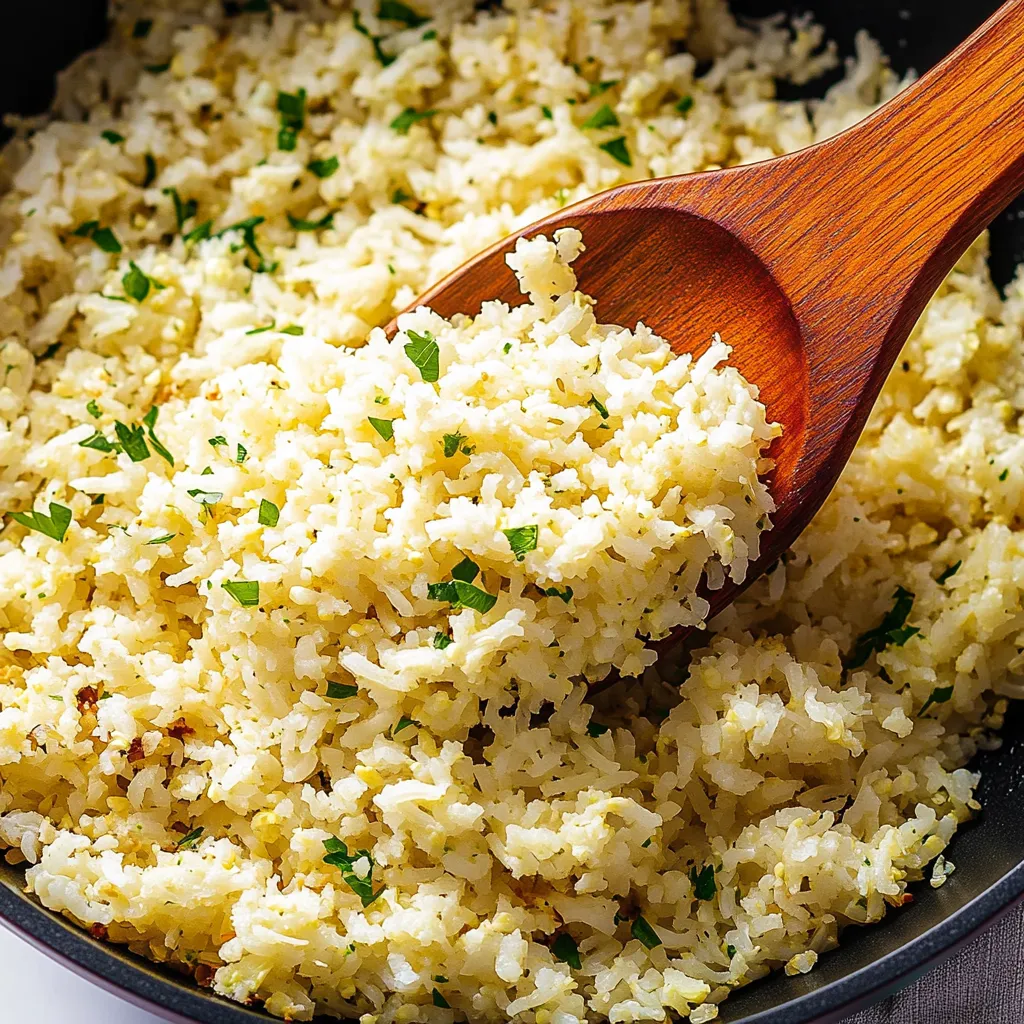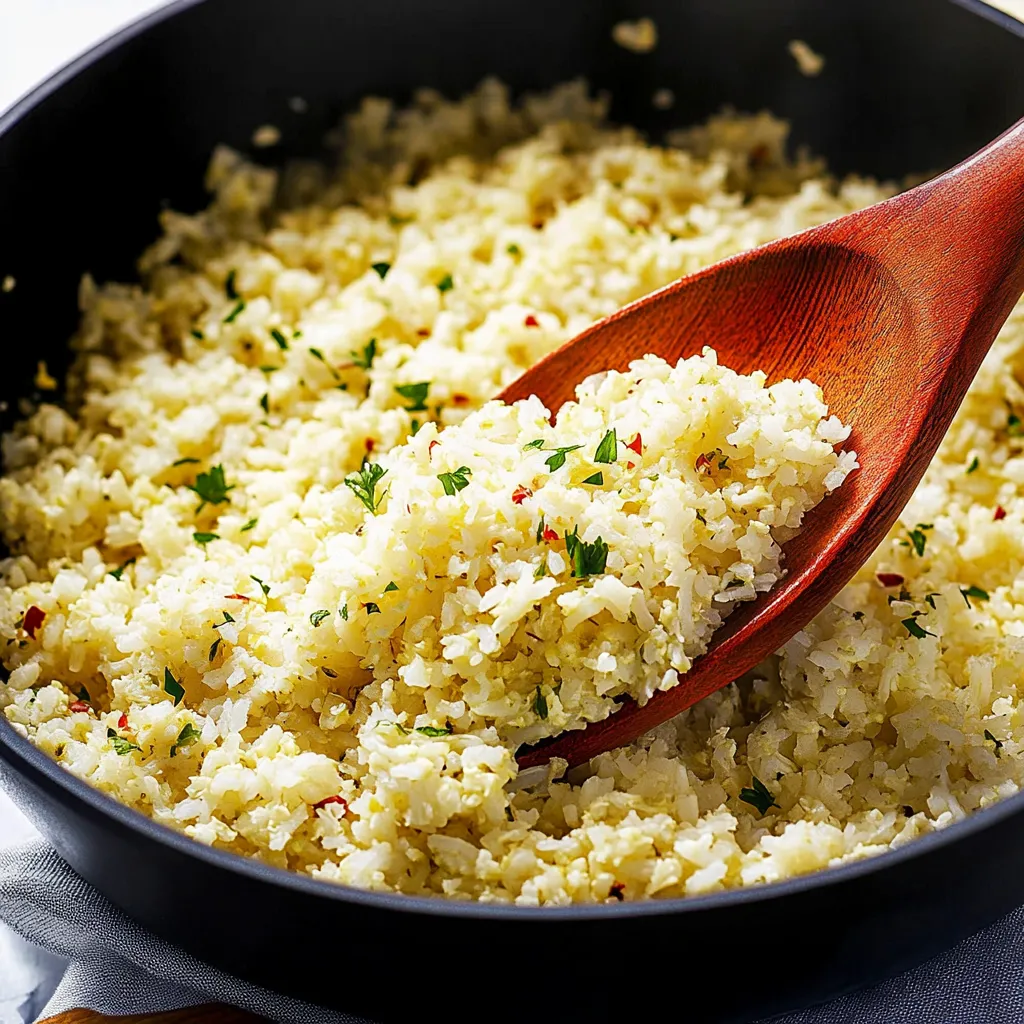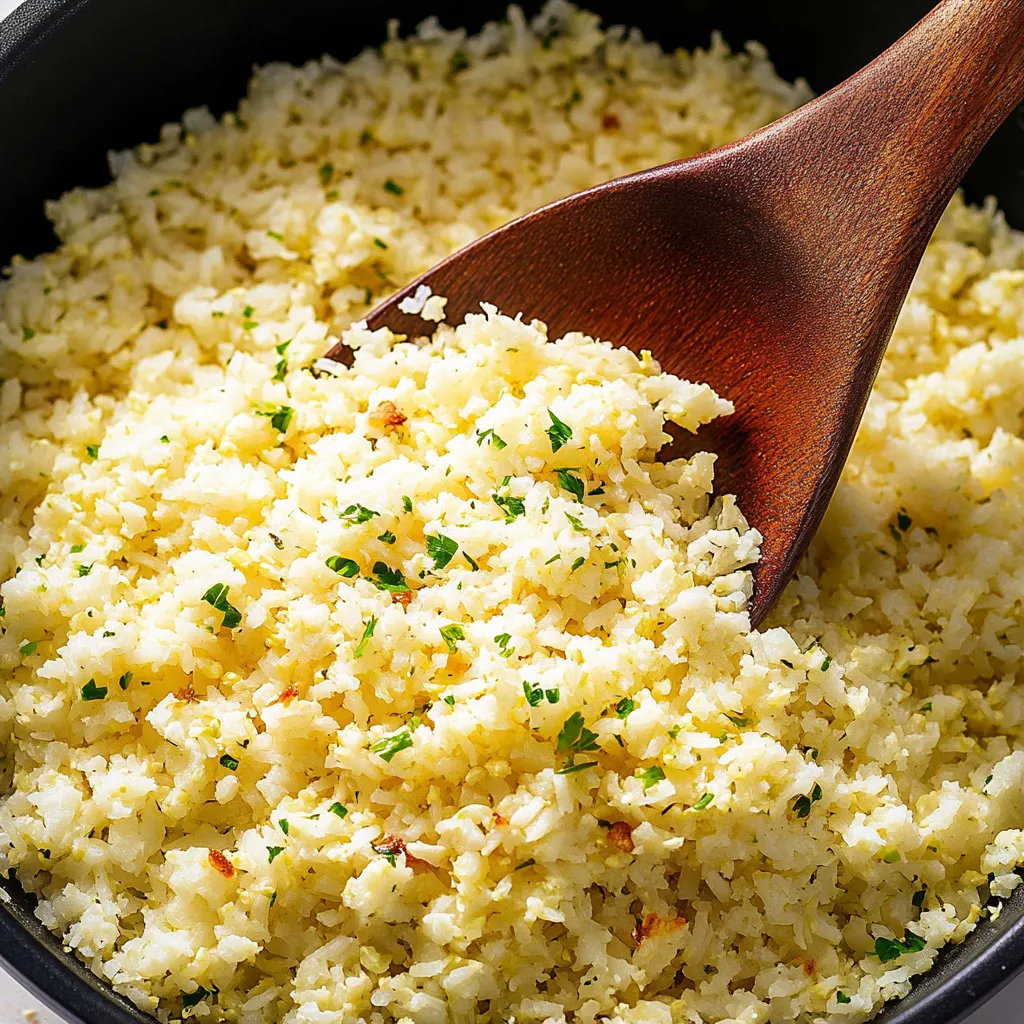 Pin it
Pin it
When you've been eating low carb or just trying to cut down on processed carbs, you eventually bump into the idea of cauliflower rice. And maybe your first thought is like mine once was — cauliflower pretending to be rice? Really? But then you try it. And if it’s cooked right, with the right technique, it’s actually really good. It’s one of those healthy swaps that doesn’t feel like a compromise.
I've been making cauliflower rice for over a decade now — long before it started showing up in frozen bags at the grocery store — and through trial, error, and many mushy pans, I’ve dialed in the method that makes it truly work. It’s not just a diet trick or a side dish you tolerate. It’s light, flavorful, satisfying, and versatile enough to go with almost anything — from curry to tacos to chicken parmesan.
Why This Cauliflower Rice Recipe Works So Well
Let’s be honest — the reason some people give up on cauliflower rice is that they’ve had it cooked the wrong way. Steamed until watery and bland. Mushy with that telltale cauliflower smell lingering in the kitchen. But when done properly, cauliflower rice becomes something else entirely.
This method gives you the best texture — not too soft, not crunchy, just that perfect tender "bite" similar to cooked white rice. It’s light and fluffy, and best of all, it doesn’t smell like steamed vegetables. The key is dry ricing and sautéing over high heat. You cook off moisture fast before it has time to develop that sulfur smell, and you’re left with a base that’s neutral, pleasant, and endlessly customizable.
Also? You don’t need a bag of frozen riced cauliflower. Making it from scratch is fast, easy, and lets you control the size and texture.
What You’ll Need (Ingredients & Equipment)
To make homemade cauliflower rice, you don’t need much:
Cauliflower Head – A medium to large head yields about 4–6 cups of rice. Look for one that’s firm and white with no brown spots. You’ll use mostly florets and discard most of the core for the best texture.
Oil for Cooking – I like avocado oil or olive oil. Ghee also works well for an extra buttery flavor. You don’t need much — just a tablespoon or two.
Seasonings – Keep it simple with sea salt and cracked black pepper. From there, you can add garlic, herbs, spices, or sauces depending on what you’re pairing it with.
Large Skillet or Sauté Pan – Use a wide pan to avoid crowding. Non-stick or stainless steel both work.
Food Processor (Optional) – Speeds things up and gives a perfect, rice-like texture. You can also use a box grater or even chop by hand if needed.
How To Rice Cauliflower (4 Easy Methods)
 Pin it
Pin it
1. Food Processor (Best Option)
This is my go-to method. Use the grater attachment, not the S-blade. It shreds cauliflower into fine, fluffy granules that mimic the size of cooked rice. If your processor only has an S-blade, pulse gently in batches to avoid over-processing.
2. Box Grater
Use the medium-sized holes to grate florets into rice-sized bits. It takes more effort and time but works well if you don’t have a processor. Wear kitchen gloves if your knuckles are nervous.
3. Blender With Water
Add florets and fill with water just enough to cover. Pulse until riced, then drain through a fine mesh sieve and pat dry with paper towels. This method is surprisingly effective, but be sure to dry it well or it’ll steam instead of sauté.
4. Knife
Chop florets finely by hand. It’s not ideal, but totally doable in a pinch. Aim for consistency and take your time.
How To Cook Cauliflower Rice (Without the Mush)
- Step 1: Prep the Cauliflower
- Cut your cauliflower into quarters, remove the core, and separate into small florets. Don’t include too many stems — the florets have a milder flavor and better texture.
- Step 2: Rice the Cauliflower
- Use one of the methods above to create small, rice-like granules. Try to get even size for even cooking.
- Step 3: Heat Your Skillet
- Use a wide pan and heat over medium-high. This is crucial to evaporate moisture quickly and prevent sogginess.
- Step 4: Add Oil
- Add 1–2 tablespoons of oil or ghee. Swirl to coat the pan.
- Step 5: Sauté the Cauliflower Rice
- Add the riced cauliflower and spread it in an even layer. Let it cook undisturbed for about 1–2 minutes to get some light browning, then stir and cook for another 3–5 minutes, depending on your texture preference. Do not cover the pan. Do not add water. And do not walk away — it cooks fast.
- Step 6: Season and Serve
- Sprinkle with salt, pepper, or any seasonings you like. Serve hot, or cool and store for later use.
Flavor Ideas & Variations
- Garlic Herb – Sauté garlic before adding the rice, then finish with parsley or basil.
- Lemon Pepper – Add lemon zest and black pepper for a fresh, bright side dish.
- Mexican Style – Stir in cumin, chili powder, lime juice, and chopped cilantro.
- Asian Stir-Fry – Add soy sauce or coconut aminos, sesame oil, and green onions.
- Cheesy Cauliflower Rice – Stir in shredded cheddar or parmesan while still warm.
- Cauliflower Fried Rice – Toss with scrambled egg, peas, carrots, garlic, and soy sauce.
 Pin it
Pin it
How To Use Cauliflower Rice In Meals
- With Stir Fry – Use it as a base for chicken, beef, or tofu stir fry.
- In Burrito Bowls – Replace regular rice with it for taco bowls, carne asada, or fajitas.
- As a Side Dish – Serve with salmon, pork chops, or grilled chicken.
- In Soups and Stews – Stir it in toward the end of cooking for added bulk and texture.
- For Casseroles – Pre-cook it first, then use in casseroles like cauliflower mac & cheese or chicken bacon ranch bakes.
- In Mediterranean Dishes – Toss with olive oil, lemon, parsley, and garlic as a base for lamb or grilled shrimp.
Final Thoughts
Cauliflower rice might sound like a trendy health swap, but in my kitchen, it’s become a weeknight staple I always keep in rotation. It’s quick, flexible, satisfying, and lets me pack in extra veggies without anyone noticing. When made right, it’s not a compromise — it’s just good food. Try this method once and you’ll never go back to the mushy, steamed versions again. Whether you’re keto, paleo, gluten-free, or just trying to eat better, this is one of those recipes that works for everyone at the table.
Frequently Asked Questions
- → Can I use frozen cauliflower rice?
- Yes, frozen works great—just cook a little longer if needed until it softens.
- → How do I freeze cauliflower rice?
- You can freeze it raw after blanching, or cooked. Store in a sealed bag for up to 4 months.
- → Is cauliflower rice keto-friendly?
- Yes! It’s naturally low in carbs and perfect for keto meals.
- → Can I make it in advance?
- Absolutely. Store raw or cooked cauliflower rice in the fridge for a few days or freeze it.
- → Does it taste like real rice?
- It doesn’t taste exactly like rice but has a mild flavor and works well as a substitute.
